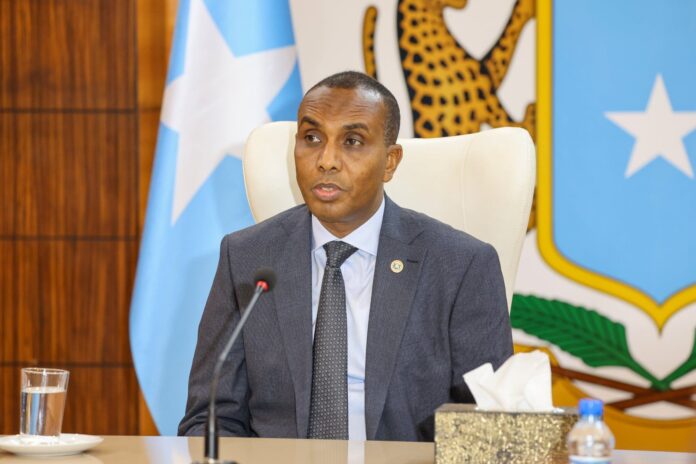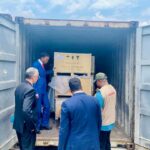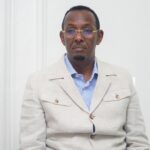NEW YORK: Somalia has managed in under a year to liberate more than 45 percent of the areas formerly held by the terrorist Al-Shabab group, Prime Minister Hamza Abdi Barre said on Saturday.
Addressing the 78th UN General Assembly, he called for “the complete and unconditional removal of the arms embargo” that has been imposed by the Security Council since 1992.
“Lifting this embargo would allow us to combat terrorism more effectively and build a peaceful and prosperous future for our people,” he said.
The arms embargo on Somalia has been the world’s “longest-lasting … widest and most comprehensive,” he added.
Barre said his country has “dealt with an iron fist with extremism,” employing a “successful campaign” encompassing military, financial and ideological measures.
He emphasized that Somalia today has “necessary administrative systems that are strict in controlling possession, use and storage of firearms.”
Somalia launched the first phase of its military offensive against the Al-Qaeda-linked Al-Shabab in August last year.
The second phase was announced last month, with the military collaborating with clan-based militias in central Somalia.
Barre stressed the need to establish a similar approach in dealing with terrorism worldwide. “We must guarantee the effective integration of local communities in a manner that protects their rights by offering justice and upholding the rule of law,” he said.
Citing recent extreme climate events and rising temperatures, Barre stressed the need for collective action to address climate change.
He said “it’s a great injustice for Somalia,” a nation that “had the least to do with carbon emissions globally,” to bear the brunt of the negative impact of climate change.
“In the past years, Somalia has been the victim of a vicious cycle of prolonged droughts and destructive floods that have killed thousands and displaced millions,” he added, urging the international community to support the country in tackling climate change.
“There’s no poorer country — compared to where it was in the 1960s — than Somalia,” he said. “Despite this, Somalia in the last decade has made tangible progress toward peace and stability. We’ve started to witness qualitative and tangible socioeconomic growth.”
Barre said his country looks forward to achieving social and economic progress free from security threats, calling for “an immediate and comprehensive cessation of violence and destruction.”
He said the plight of the Palestinians “continues to be a source of shame to us all.” Barre pledged continued solidarity with them, and called for the adoption of a two-state solution to the Israeli-Palestinian conflict along the pre-June 1967 borders.
Describing the world as “fragmented on one end and unequal on the other,” he called for reform of multilateral institutions such as the UN and development banks “because these establishments and their current structures are no longer fit for purpose.”







